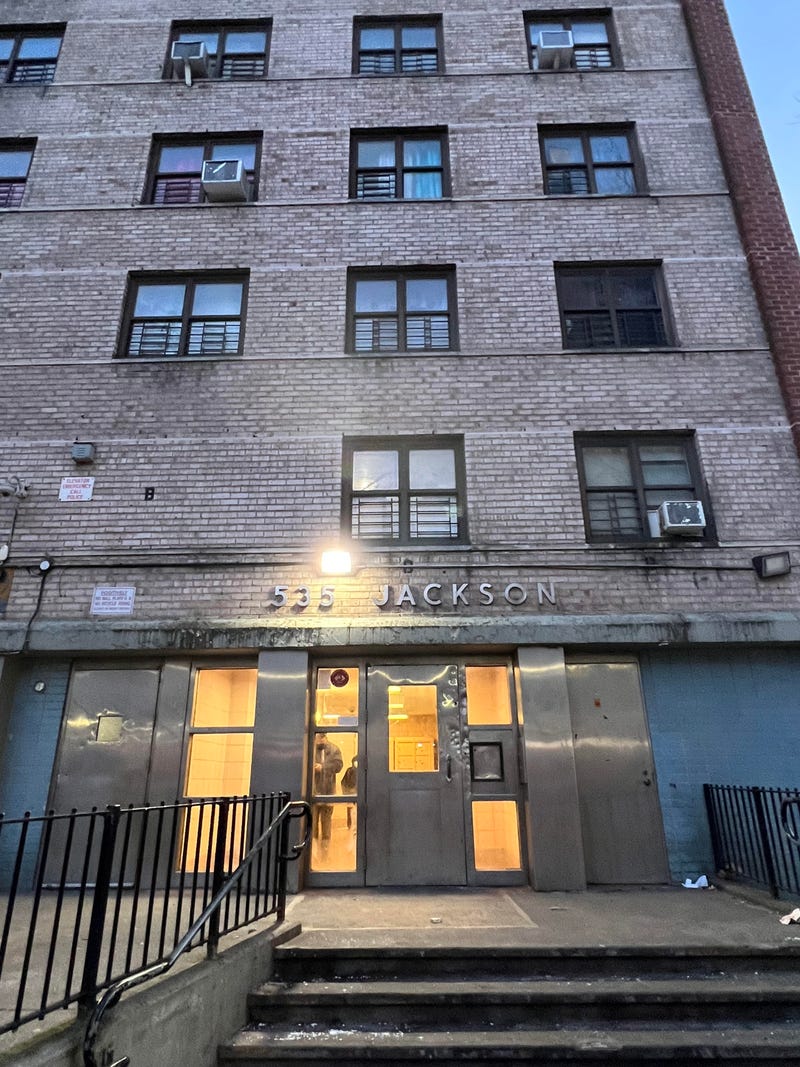
NEW YORK (1010 WINS) — Ten NYCHA public housing buildings across five complexes in the Bronx, Brooklyn and Manhattan were lacking heat, hot water or both as temperatures dipped into the single digits on Friday.
The agency said 2,475 people across 1,052 units have been impacted by the outages.
In the Bronx, one building at Edenwald in Eastchester had no hot water and two at the Moore houses in Mott Haven had heat and hot water outages.
In Brooklyn, all four buildings at the Seth Low Houses in Brownsville were lacking heat and hot water and three buildings at Park Rock Rehab in Crown Heights had heat outages.
In Manhattan, one building at the Samuel Gompers Houses had no heat and hot water.
NYCHA did not respond to 1010 WINS’ request for comment.
The Edenwald outage was reported at 3 p.m., but NYCHA workers had restored service as of 8:30 p.m., according to the agency’s online outage portal. None of the other buildings had service restored by Friday evening.
The outage at the Moore Houses was reported around 6 a.m., the Low Houses at 5:38 p.m., Park Rock Rehab at 3 p.m. and Gompers at 8:15 p.m.
Temperatures are expected to reach a low of 9 degrees Friday night, as New York City confronts some of the coldest weather of the winter so far.
When it’s cold outside and the heat goes out, residents are forced to turn to space heaters, which can pose a fire hazard. An electric space heater sparked the fire that killed 17 people, including eight children, at a Bronx public housing building on Jan. 9, 2022.
The building had a history of heat violations, including no heat, insufficient heat and broken radiators, according to a report from BuzzFeed.
NYCHA is legally obligated to provide heat between Oct. 1 and May 31. Utility outages during the 2021-2022 cold season totaled 3,605, an increase from 2,872 outages recorded during the 2020-2021 season, according to documents obtained by the Legal Aid Society.
NYCHA is chronically underfunded. Officials estimated NYCHA complexes in New York City will need an additional $47.7 billion over the next five years to keep up with maintenance. That price tag is expected to increase by $68.6 billion by 2028.
The agency’s total expenditures for 2022 totaled roughly $4.2 billion, according to the Mayor’s Management Report, an annual assessment of city finances and agency performance.
Even with the insufficient funds that have been made available to NYCHA, mismanagement often leads to inadequate or delayed repairs.
NYCHA has allocated $450 million in state funding since 2019 to the system’s worst-performing boilers and elevators, but, as of mid-2022, much of the money hadn’t been spent due to “poor performance during project planning and procurement,” according to the federal monitor.



